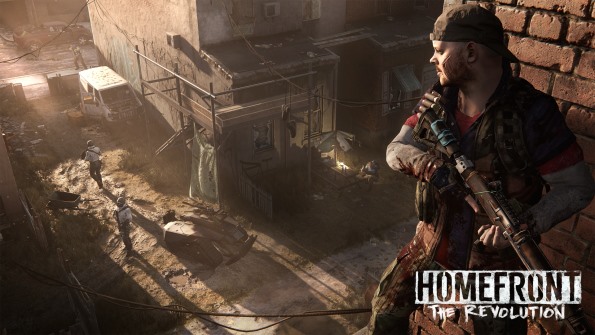 Last week, we reported on the problems dogging Crytek, with UK staff allegedly going unpaid and increasing concerns over the company’s ability to continue as a going concern. Those concerns have only amplified in the past week — it’s now reprorted that the majority of Crytek UK staff have turned in formal letters of grievance and left for home.
Last week, we reported on the problems dogging Crytek, with UK staff allegedly going unpaid and increasing concerns over the company’s ability to continue as a going concern. Those concerns have only amplified in the past week — it’s now reprorted that the majority of Crytek UK staff have turned in formal letters of grievance and left for home.
Obviously reports like this need to be taken with a grain of salt, but Kotaku states that it’s now heard from “close to 20” sources with positions at the company. In an age where employment can be quickly verified, a game studio isn’t going to have 20 spoof accounts or two dozen disgruntled ex-janitors masquerading as programmers. The reason for the walk-offs is simple — Crytek staff report they still aren’t being paid the amount they owed. The studio is supposedly in talks with Deep Silver, the publisher behind the upcoming Homefront: The Revolution, and employees are hoping Deep Silver will buy them so the project can continue.
Crytek UK was responsible for the multiplayer section of Crysis 2, parts of Crysis 3 (in cooperation with Crytek Frankfurt), and the aforementioned Homefront.
The reason these UK issues are being taken as signs of serious trouble across the entire studio is because Crytek appears to own Crytek UK outright. The reports of near-insolvency have all mentioned Ryse’s low sales as a major problem — if Crytek UK’s finances were completely separate from the other studios, Ryse’s performance wouldn’t enter into the conversation. This seems to suggest that this is a company-wide problem, and that means we could see the studio declare bankruptcy in the not-so-distant future. Companies that can’t make payroll can’t retain employees — if other Crytek studios are having similar problems, the company isn’t going to hold together very long.
Exactly what this would mean is unclear – Crytek has invested a great deal of money into developing a cutting-edge graphics engine, but it only has a few games in the pipeline — Arena of Fate is an F2P game that’s meant to be funded by in-game purchases, while Hunt: Horrors of the Gilded Age was a spiritual successor to the Darksiders franchise and was also designed around F2P. Snarky comments about the long-term future of that game-funding method aside, it’s not clear where Crytek planned to earn its income unless CryEngine licensing is far more lucrative than we’d expect.


